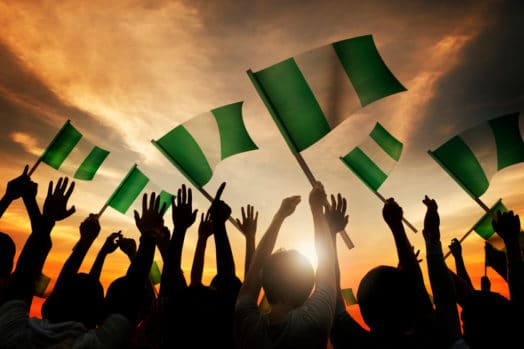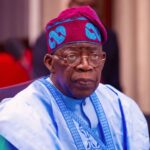Yesterday, the African Polling Institute organised a spirit-raising event in Abuja focused on a debate on social cohesion in Nigeria. The topic would normally generate a sombre, pessimistic and fatalistic rendition of yet another descent into the doldrums. My favourite poet and defender of the Nigeria idea, the poetry slam maestro, Dike Chukwumerije set the stage for optimism rolling out a performance centred on the idea that the existence of Nigeria and Nigerians is self-evident. Yes, it’ s true he said, that some people have given up on Nigeria and want out. There are yet others who would have loved Nigeria to be but have deep doubts about its future and live paralysed in the agony and fear of what could have become. The majority of us however are very conscious of the challenges facing Nigeria but believe with pride that its promise could become a reality and work for its coming greatness with the skills, pride and assertiveness that Nigerians are known for worldwide. Lugard, he reminded us never intended Nigerians to become a proud and assertive people, damn him, that is what we are and on a daily basis, believers on the Nigeria project are emerging.
The event was the unveiling of the 2021 social cohesion report by the Africa Polling Institute. They interrogated a cross section of Nigerians and the results are interesting. 49% of Nigerians are disappointed in their country while 42% feel truly proud of Nigeria. Not surprisingly, 65% of citizens expressed concerns that Nigeria is today more divided than it was four years ago. It is however revealing that 82% of respondents said that they are comfortable with their dual identity of being both Nigerian and member of their ethnic group. That is the comfort zone from where we can build the ranks of believers in the Nigeria project. The problem is that we are in an unfortunate period of decline. In the 2019 survey, 55% of citizens said they were truly proud of being Nigerian. In the current (2021) survey, the number has declined dramatically to 42%. The key finding is that governance matters and most Nigerians believe that there is lack of equity and justice in governance, a challenge that can be addressed. The lesson is that building support for the Nigerian project requires the building of trust, equity, social justice and inclusive governance. If and when the next government takes that path, pride and commitment in building the Nigeria of our dreams will begin to grow again.
- Jos crisis: Kaduna evacuates 87 students from Plateau
- Ortom challenges Buhari to debate on national issues
The survey reveals what we all know. That Nigerians are angry at the massive corruption in government and the on-going run of looting the treasury. Secondly, that there is a crisis of citizenship summarised in what Nigerians call the lack of “true” federalism, accompanied by the neglected call for restructuring. Thirdly, there is widespread consternation on the inability of the political class to deepen democratic practices as they remain self-serving in their actions and are actually rolling back democratic gains.
The keynote speaker, Dr Hussaini Hassan emphasised the issue of the imperative of inclusiveness. Social cohesion, he explained, is not about developing a homogenous society. It is about creating pathways to inclusiveness in a diverse society. He also drew attention to the absence of uplifting and explanatory governmental narratives on the challenges facing the country. He gave examples of the Boko Haram insurgency, farmer-herder conflicts, kidnapping and banditry where the absence of governmental narratives and concrete action have opened the gateway to citizens’ explanations, which often are drawn from conspiracy theories that erode trust in not just government, but also in the nation.
The Special Guest, Vice President Osinbajo, in his own speech made the case that Nigerians know that we have been on the path of nation-building for too long to seriously consider the option of secession. We have developed transport links, markets and numerous interdependent economic activities that can only deepen and consolidate, he argued. We are a resilient people and can surmount present challenges and so while nation-building is hard work, we should all commit ourselves to do the work. In telling our stories, we are too attracted to the negative stories and we need to focus on the good narratives – of Christians saving Muslims and Muslims saving Christians during moments of violence. The same on ethnic and community strife. He also called for a move away of attributing evil acts committed by criminals to ethnic communities. He concluded on the note that optimism must prevail because we are an unbreakable people and we, Nigerians, will prevail.
My impression is that at the end of the day, the success of the Nigeria project will depend on our ability to engage in the task of the reconstruction of the Nigerian State. We cannot allow our political community to continue to crumble and suffer the outcome of State collapse, which Thomas Hobbes had assured us will make our lives “nasty, brutish and short”. Rebuilding the State must take the form of a new approach based on good governance in which there is effective, transparent and accountable use of public resources to provide public goods for citizens. If those who exercise State power cannot use it to improve the lives and livelihoods of citizens, then they would have to be replaced. Our State must also recover the capacity to have the monopoly of the use of legitimate violence in society. The armed forces must be rebuilt. As the State recovers, our traditional and religious institutions as well as civil society have a huge role in playing their part in the war against on-going insurgencies.
Given the huge security challenges facing the country, it is important that Nigeria as a nation devises effective strategies that will stem the insurgency and create conditions for the protection of human rights and the deepening of democracy. The armed forces have a significant role to play in this regard. Nigerians are particularly concerned about the rules of engagement for military operations within the civilian population. There are military operations in virtually all states of the country. This means that the normal process of police being in charge of internal security issues no longer operates. At the same time, the military has not been traditionally trained to engage in this arena and their rules of engagement might not be suitable for the new role thrust upon them. It is important in this context to publish, debate and revise the rules of engagement to ensure that they are in conformity with human rights principles. We cannot give up on the police. We must expand the police, train them and build their capacity for effective law enforcement based on the principles of the rule of law.

 Join Daily Trust WhatsApp Community For Quick Access To News and Happenings Around You.
Join Daily Trust WhatsApp Community For Quick Access To News and Happenings Around You.


